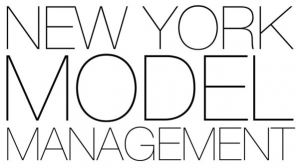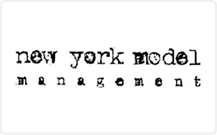NY Model Management is likely well known for its representation of models. But as of late, they might receive a new label – “Likely to Litigate.” Recently, the modeling agency initiated 2 lawsuits, both involving former employees soliciting NYMM models, thus creating a breach of contract over employment agreements that were in play. What is the likelihood of success for NYMM regarding this type of lawsuit? Let’s take a look at each case first!
On April 17th NY Models brought a lawsuit against Trump Models and a recent former employee, Lorraine Ospedales, a booking agent. The charge is for a breach of contract over an employment agreement between NYMM and Ospedales. The agency now alleges Ospedales has attempted to contact several NYMM models as soon as 30 days after termination.
With regard to Trump Models, the allegation is for aiding and abetting Ospedales’ wrongful actions, causing intentional interference with NYMM’s business contracts. Further, the agency alleges active encouragement on the part of Trump Models to solicit models. Repeated cease and desist letters were sent, but no response was received, and allegedly the attempts to solicit have continued. NYMM is seeking monetary relief (unspecified damages amount) and expedited discovery.
Originally, Page Six reported the story with a quote from the Trump Organization’s VP and General Counsel, Alan Garten – “These allegations are completely baseless and without merit. The agent didn’t even have an enforceable agreement [with NYMM], and even if she had, we haven’t done anything to violate it.” This suit was filed over 4 months ago, so my question is – where is Trump Models’ official Answer to the Complaint?? But clearly a lack of an answer didn’t stop NYMM from filing a 2nd similar lawsuit against another rival NY-based modeling agency.
This time, NYMM filed suit against Muse Model Management. Again, the agency is alleging a former booking agent, Jackie Sanchez (now working for Muse), breached her contract. Similarly, NY Models alleges that Sanchez approached models, whom she knew were under contract, to induce them to breach their contracts with NYMM and sign with Muse. Here NY Models is seeking half a million in damages.
As of now, this is what we know regarding NYMM’s employment agreement —
- The agreement is set forth in an employee handbook.
- Ospedales allegedly signed an “Acknowledgment of Receipt of the NYMM Employee Handbook.” I do not have access to the complaint against Sanchez, but it’s likely she signed an acknowledgment as well.
- There seems to be no mention of a non-compete clause, just a non-solicitation provision, which states — employees who leave are not to solicit or take away, or attempt to do so, any clients, employees, or models of NYMM for a period of 6 months after termination of employment.
- Ospedales resigned on March 14th, 2014. On this same day, NYMM emailed a reminder of this agreement. Again, I’m unsure if Sanchez received an email, but this might be common practice to send this type of email to former employees, so it’s very likely Sanchez was sent the same email reminder.
- With regard to Trump Models, NYMM alleges they were aware of this agreement and it’s terms. The agency claims this type of agreement, a non-solicitation clause, is standard in the industry, meaning Trump Models would be aware of its existence. It’s unclear if with the suit against Sanchez, if Muse Models is also being included. But if this type of agreement is common in the industry, Muse would be aware of its existence as well.
Employment agreements are used in a wide variety of industries. Companies use them when hiring new employees. Generally these agreements cover 2 main provisions – a non-compete and a non-solicitation. A “non-compete” comes into effect when an employee leaves the company. It might limit where an employee can work in the future or even time periods for direct competitive work. But there are limits to the terms of these agreements, such as the limitations can’t be overbroad, overly burdensome, or injurious to the public. NY disfavors these types of restrictive covenants, including non-solicitation clauses, which is the provision at issue in the abovementioned lawsuits. The policy reasoning behind many states’ disfavor towards restrictive covenants is to show support of an individual’s right to pursue one’s profession or livelihood.
With regard to the NYMM lawsuits, we are seemingly dealing with issues arising from a non-solicitation clause only. In this instance, the employer is restraining an ex-employee from soliciting/contacting customers or employees of his or her former employer after employment has ended for up to a certain amount of time. However, Courts will look to the reasonableness of the provision to determine whether or not the it should be given effect. Courts will still scrutinize these provisions to ensure they are not overbroad in scope or too lengthy of a timeframe.
Models at Issue With NYMM v. Trump Models

 Christina Makowski & Veronica Zoppolo
Christina Makowski & Veronica Zoppolo
Vanusa Savaris
In a recent NY case, Brown v. Brown, the court issued a stern warning to employers that they must carefully draft their restrictive covenants if they hope to obtain judicial enforcement; any sign of overreaching in the language of the restrictive covenant may serve to nullify the whole provision. The court is making it very clear that it will not “redline” these agreements — either be reasonable in the first instance or run the risk of getting nothing at all. What does this mean for NYMM?
If there are other portions to the NYMM employment agreement that could be construed as being unreasonable or overly burdensome, this means even the non-solicitation clause could be stricken. But what about the specific terms in the non-solicitation clause — “any agency clients or models” & “for a period of 6 months after employment”?
In OTG Management v. Konstantinidis, a non-solicitation clause prohibiting the solicitation of “any employee or customer” “for 2 years post employment” was upheld. The court specifically found there would be no unreasonable burden with regard to future employment for Konstantinidis. Similarly then, it could be said that for Ospedales or Sanchez, for an even more limited time of 6 months, that the non-solicitation clause is not overly burdensome or too broad, meaning it could be upheld.
Let’s take a look at a non-solicitation clause where a court found it to be unenforceable, Eyes of the World v. Boci. The provision called for a 1 year time frame, “following termination for any reason”, “to not provide Salon Services in NYC to any client of Eyes of the World for whom you provided services to during the last 12 months of employment.” The court found this clause to be overbroad, burdensome to the employee, and unreasonable in its limitation. But as compared to the NYMM clause, this provisions seems to also incorporate a non-compete, in restricting where one can work. NYMM’s provision makes no mention of where a former employee can work.
With regard to the terms provided in the NYMM complaint, it would seem that for only a non-solicitation clause that it would likely be upheld since it’s not overly burdensome or overbroad. But if other provisions of the employment agreement were not of this same nature or language, the court might conclude differently. In addition, even if the clause is deemed enforceable, there is still a matter of proving breach to the agreement. Fashion Nexus plans to keep an eye on the development of both of these lawsuits to see how additional facts that are brought into the light might impact my initial analysis!


















